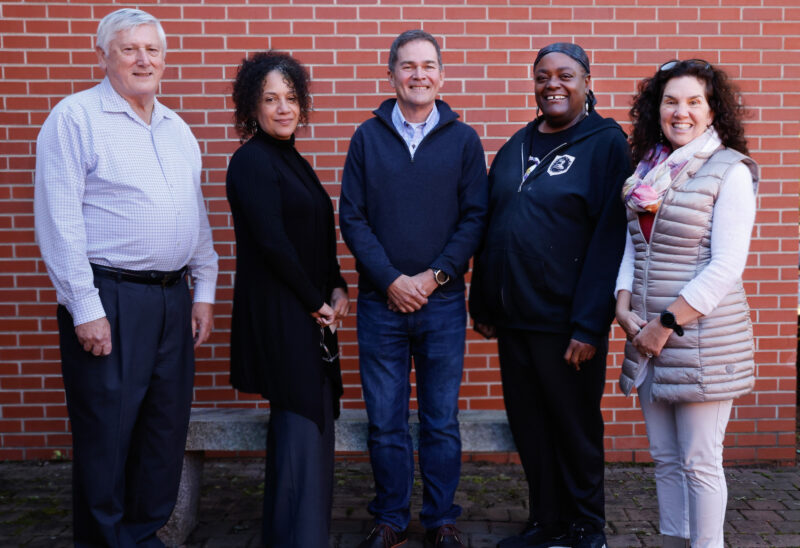For a single mom in the North Country, it was a round-trip bus ticket to renew her nursing license and keep her job.
For a teen in the Monadnock Region, it was a bicycle that means he can attend youth programs that help him to thrive.
For anxious families all over New Hampshire, it’s been immediate help to keep the heat or lights on.
New Hampshire’s 19 family resource centers have helped hundreds of families through the Trestle Fund, established last year at the Charitable Foundation with the support of many donors.
The fund is unrestricted, so it can be used to help families facing challenges not typically covered by public assistance or programs, or that need attention before applications for those programs could be processed.
For Pamela S. in Laconia, it was help paying for auto repairs after a cold winter on foot.
“You don’t realize how much a vehicle is helpful until you don’t have one,” said Pamela. “I was walking my niece to high school and my fiancé was walking my nephew to middle school through the whole winter.”
The aid can be offered promptly, sometimes immediately. Many public assistance program applications take weeks to process.
“The Trestle Fund is often the only piece that offers the family immediate relief and immediate breathing room that relieves stress and opens possibilities for a longer-term solution,” said Becky Berk, impact director at New Hampshire Children’s Trust, a statewide organization which administers the funds for family resource centers.
“When a family walks in and says, ‘We can’t pay our electricity bill and the company is threatening to cut us off,’ that family needs help in the moment,” Berk said.
The fund is a bridge (or trestle) to help families over a crisis. Once the crisis has passed, family resource centers can help connect people to other resources to help them build better lives for their families — including energy assistance, financial resiliency or parenting classes.
From January 2022 to mid-July of this year, family resource centers have helped New Hampshire families with nearly 2,000 Trestle Fund disbursements totaling nearly $960,000.
“Cheerleading is great, helping people navigate systems is great, but to have this fund says a foundation or community as a whole believes you are worth this, you are worth investing in and we want to see you move ahead,” said Patti Stolte, executive director of the Family Resource Center of Northern New Hampshire.
Erin Pettengill, vice president of the Family Resource Center of Central New Hampshire, said it’s a blessing to be able to provide instant aid. She cited a single mom of three who needed tires to pass her vehicle inspection.
“To be able to write the check and get her tires that day so she could bring her kids to child care and go to work — that worry goes away and we are able to help her on a higher level,” Pettengill said. “She just needed that one leg up to get over that hump.”
The prompt help is “a bit of a miracle” that opens the door for lasting changes, said Brenda Guggisberg, executive director of the Upper Room in Derry. “OK, my electric bill can get paid, now we can figure out what to do for my teenage son or daughter who is really struggling.’”
The Trestle Fund was established in collaboration with family resource centers when they suggested a flexible fund would help them better serve their communities. Generous people created and contributed to the fund at the Charitable Foundation, and the Foundation then provided grants from it to the Children’s Trust because of the Trust’s close relationship with resource centers, who in turn have close relationships with families and community partners.
The Trestle Fund also is helping to connect agencies. In many communities, mental health centers, schools, social service agencies and the police refer families to resource centers for Trestle Fund help.
“The fund is affecting the entire community, the entire state,” said Pettengill.
Community ties and personal contact help ensure the fund is providing needed support, improving health, reducing stress and advancing self-sufficiency.
“This is not our money,” said Guggisberg. “It was given to us so generously and we want to make sure we are honoring how we give it out and that we are giving it to people who actually need it.”
Centers typically send disbursements directly to service providers, such as utility companies or auto shops or reimburse families with receipts for emergency needs they have paid for.
Pamela learned of the fund through an existing relationship with the family resource center in Laconia. Her car repair help was approved a couple of days after she submitted estimates.
Having a car allowed her niece and nephew to attend after-school activities. And, Pamela saves on groceries by driving to a supermarket instead of shopping at a more expensive store within walking distance.
“I would have been so stressed and upset, probably depressed and hopeless, not knowing where I was going to turn,” she said. “It took away all of that stress.”
The fund has relieved stress by paying for car registrations, a driver’s ed course, rental security deposits, steel-toed boots to allow a man to start a new job and a washer-dryer for a single mom.
It also supports child care, day camp, summer camp or other activities, helping families by enriching kids and easing challenges for parents or caregivers who must work.
The fund helps head off challenges that can lead to other struggles, especially for families who are one paycheck or car repair away from disaster.
“When something that is unexpected, unanticipated or expensive comes in, it often is the very first crumb that starts rolling down the hill, turning into a huge snowball,” said Berk. “One thing impacts another thing, impacts another thing. Sometimes those seemingly relatively insignificant places to assist can prevent it from snowballing.”

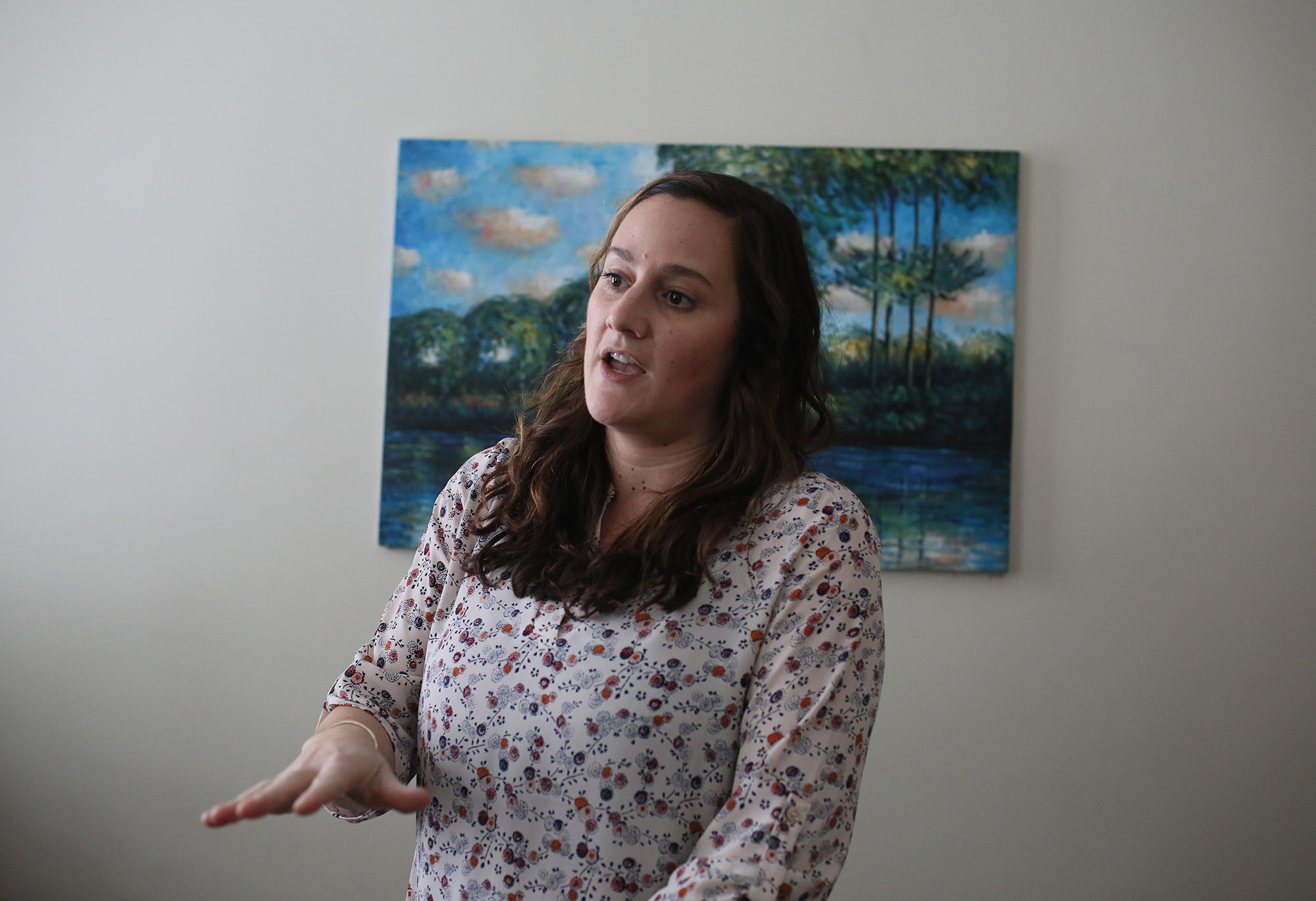







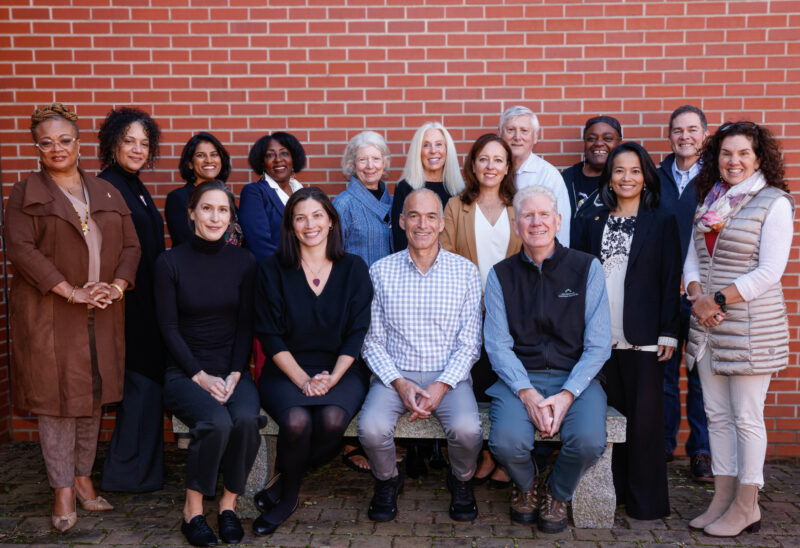
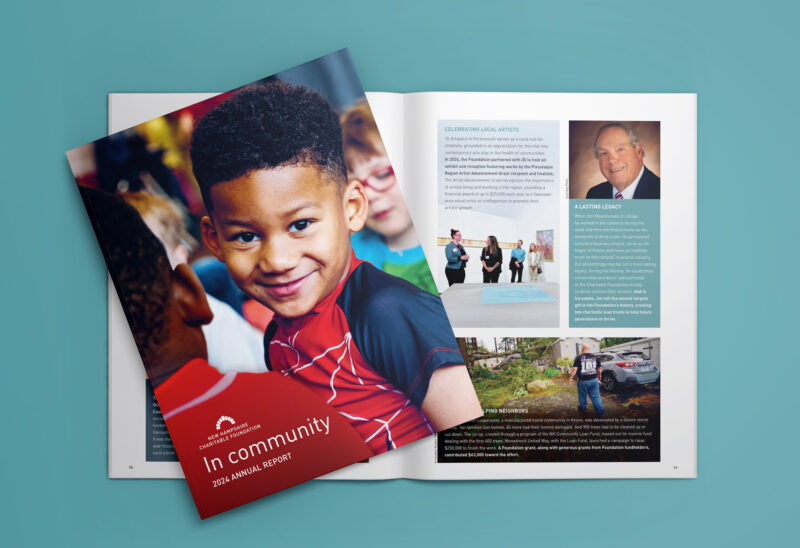




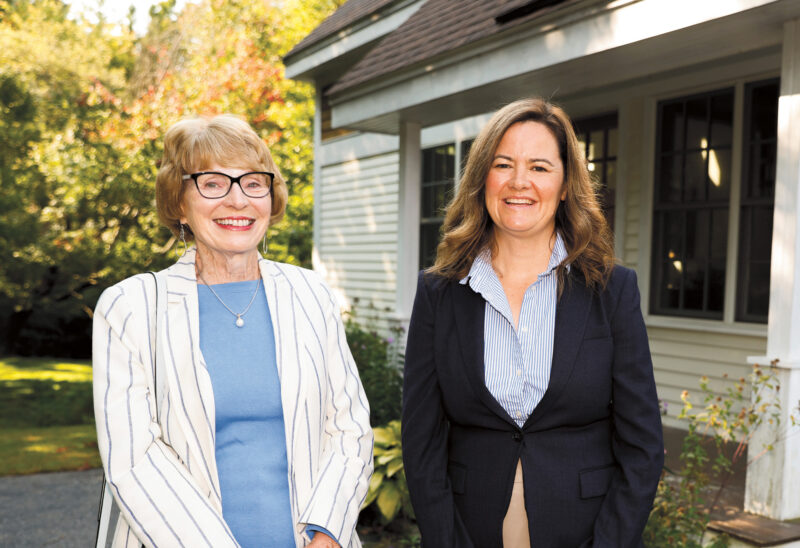
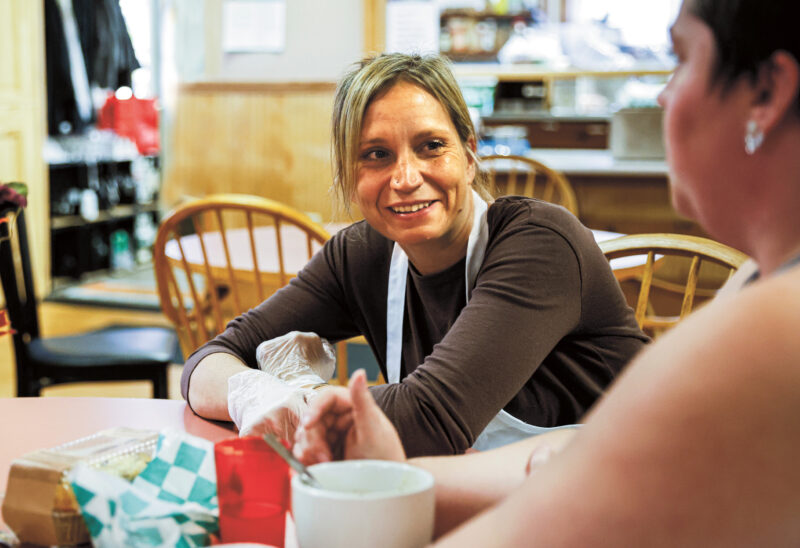
![Charitable Foundation President Dick Ober [Photo by Cheryl Senter]](https://www.nhcf.org/wp-content/uploads/2023/12/dick-ober-purpose-fall-winter-2023-800x548.jpg)
